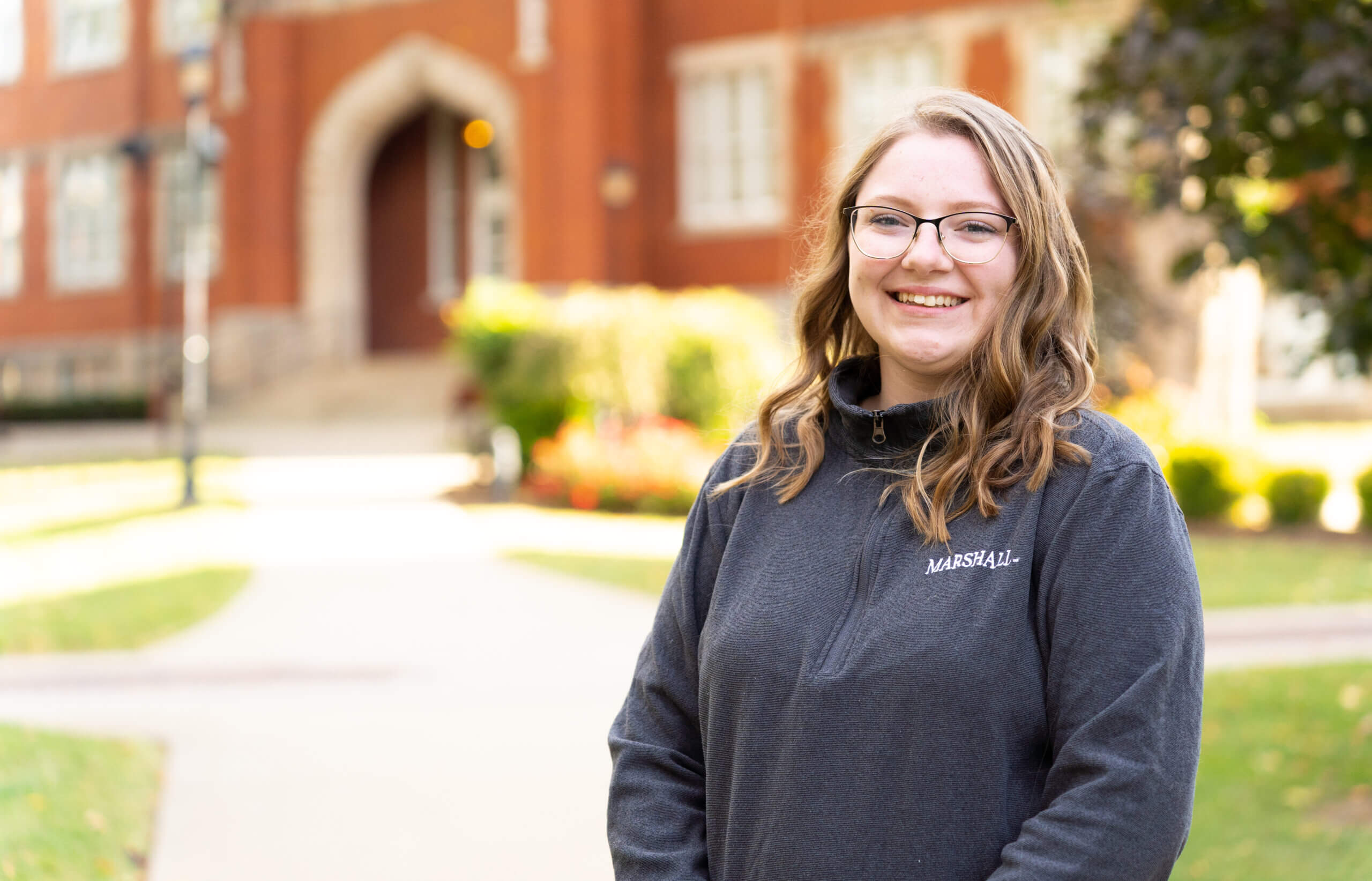Program Overview
The B.S.E.E. in Electrical and Computer Engineering program at Marshall University in Huntington, West Virginia, allows students to get a double major degree of electrical engineering and computer engineering simultaneously, preparing them for a breadth of careers in fields ranging from energy to aerospace to IT to a wide range of industries. Whether a CAD technician, a network engineer or a nuclear engineer, Marshall graduates with a B.S.E.E. in Electrical and Computer Engineering have skills needed to solve complex engineering problems, using solutions that meet needs of public health and safety, as well as global, cultural, social, environmental, economic and other factors.
One of the premier engineering programs in West Virginia, Marshall’s Department of Computer Sciences and Electrical Engineering has top facilities and experienced faculty making contributions of their own, as well as making sure that Marshall’s B.S.E.E. graduates have honed skills in conducting experimentation, analyzing and interpreting data, and using engineering judgment to draw conclusions, and recognize ethical and professional responsibilities in engineering situations.
The technical knowledge in the electrical and computer engineering is constantly evolving and extensive, and so is the program of study for Marshall’s electrical engineering and computer engineering bachelor’s degree students. Marshall’s B.S.E.E. students gain extensive knowledge and hands-on experience in energy and power systems, control systems, communication systems, and computer engineering. We have experienced faculty members with various areas of expertise, such as Wireless Communications and Networks, Signal Processing, Machine Learning, Discrete Control, Embedded Systems, Microgrid Design and Renewable Energy. More info about the degree program.

Request Info
- Find out which of our academic programs is right for you.
- Meet some of our current students and hear about their favorite Marshall moments.
- Receive invitations to special events for future students.
- Get help with the application and enrollment process.
Program Highlights
Marshall’s Weisberg Applied Engineering Complex on our Huntington, West Virginia, campus is equipped to give students hands-on laboratory experience for all areas of specialization. The facility’s features include a:
- Power and Energy Conversion Lab
- Circuits Lab
- Control Systems Lab
- Embedded Systems Lab
- Communication Systems Lab
Marshall B.S.E.E. students benefit from courses and class schedules carefully designed with busy lives in mind. Our programs are developed by professors with high expertise in their field and reflect the latest industry standards. Students earning an electrical and computer engineering bachelor’s degree will build upon their communication, information utilization and collaboration skills to enhance their abilities to effectively be leaders in the field of electrical and computer engineering.
Involvement in scientific research is for an excellent way for students to prepare for tackling real-world engineering challenges, and Marshall students involved in IEEE have proven that students are up to the task. Under the advisement of Electrical Engineering faculty, students have authored papers, such as:
- Optimal Penetration of Combined Wind DG and VAR Compensation for Voltage Stability Improvement” and
- Hardware Microprogramming Education Using Raspberry PI and Arduino Technologies.”
Featured Courses
Career Opportunities
Career options are vast for a graduate with a bachelor’s degree in electrical engineering or a B.S. in computer engineering. Some examples are listed below.
- Electrical Engineer
- Aerospace Engineer
- Computer Systems Analyst
- Web Developer
- Computer User Support Specialist
- Computer Programmer

Admission Information
Admission Requirements
- Meet Marshall University admission requirements
- Admission to the B.S.E.E. program requires a minimum composite ACT score of 21 with a math score of 24, or a minimum SAT composite of 980 with a math SAT of 560.
- Transfer students must have completed MTH 127/130 College Algebra and MTH 132 Pre-Calculus.
Students not meeting the ACT/SAT score requirements above may enroll in Pre-Engineering. Requirements for Pre-Engineering are a minimum composite ACT score of 19 with a math score of 19-23, or a minimum SAT composite of 900 with a math SAT of 460-550. Students who are admitted to the Pre-Engineering program generally will require an additional calendar year to complete the requirements for the B.S.E.E. degree. Transfer students must be eligible to take MTH127/130 College Algebra and MTH132 Pre-Calculus.

